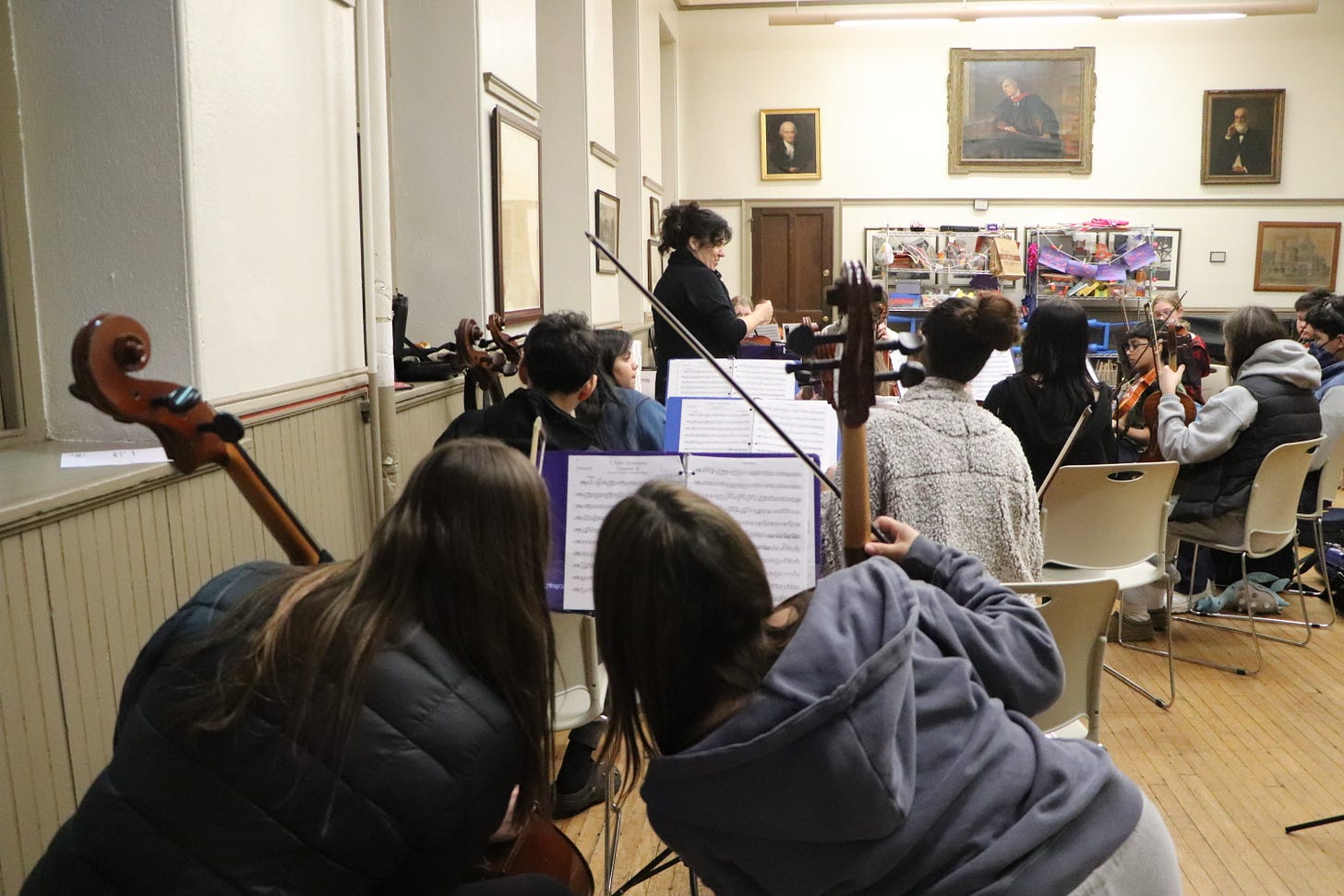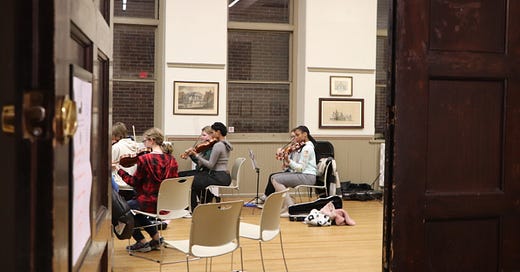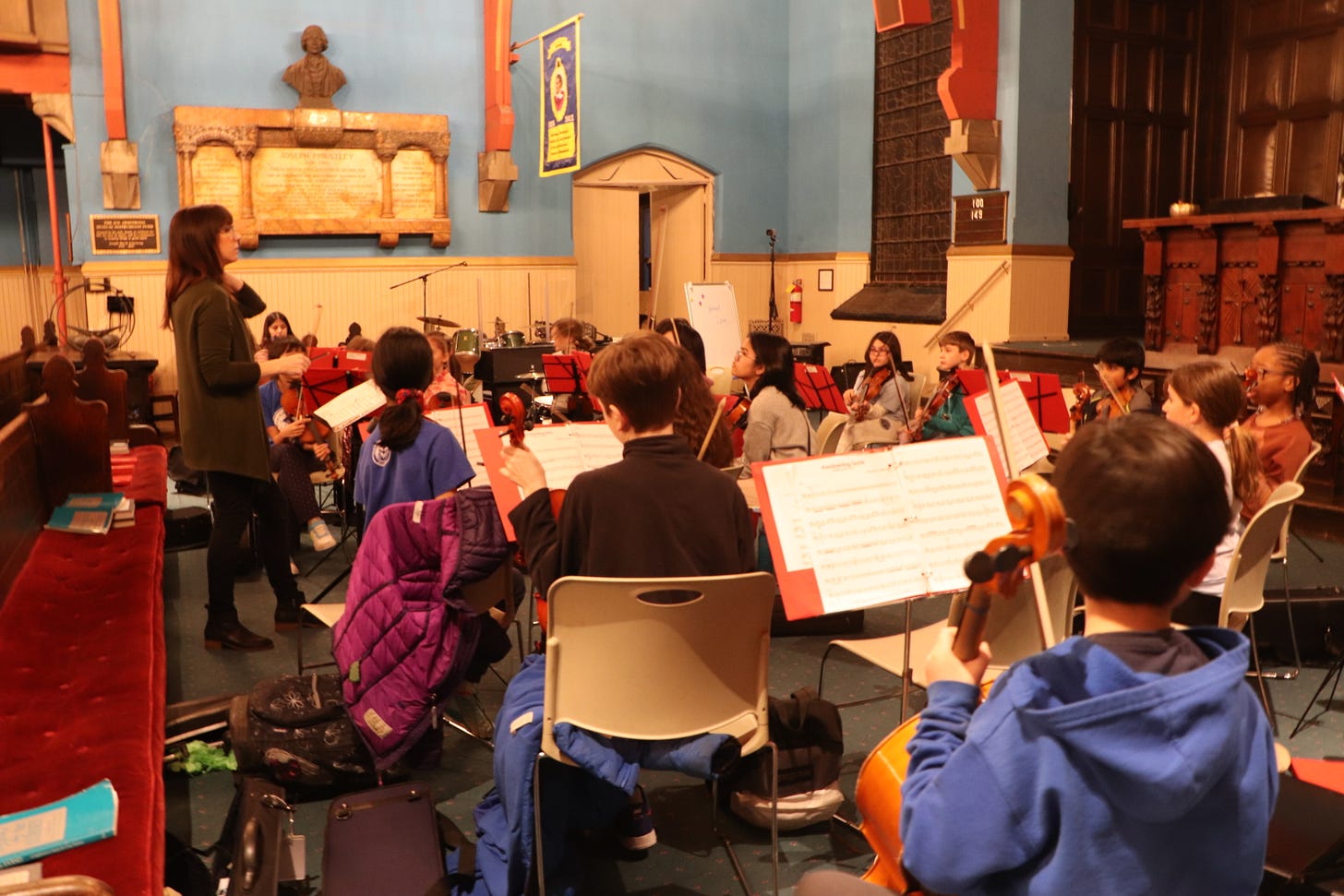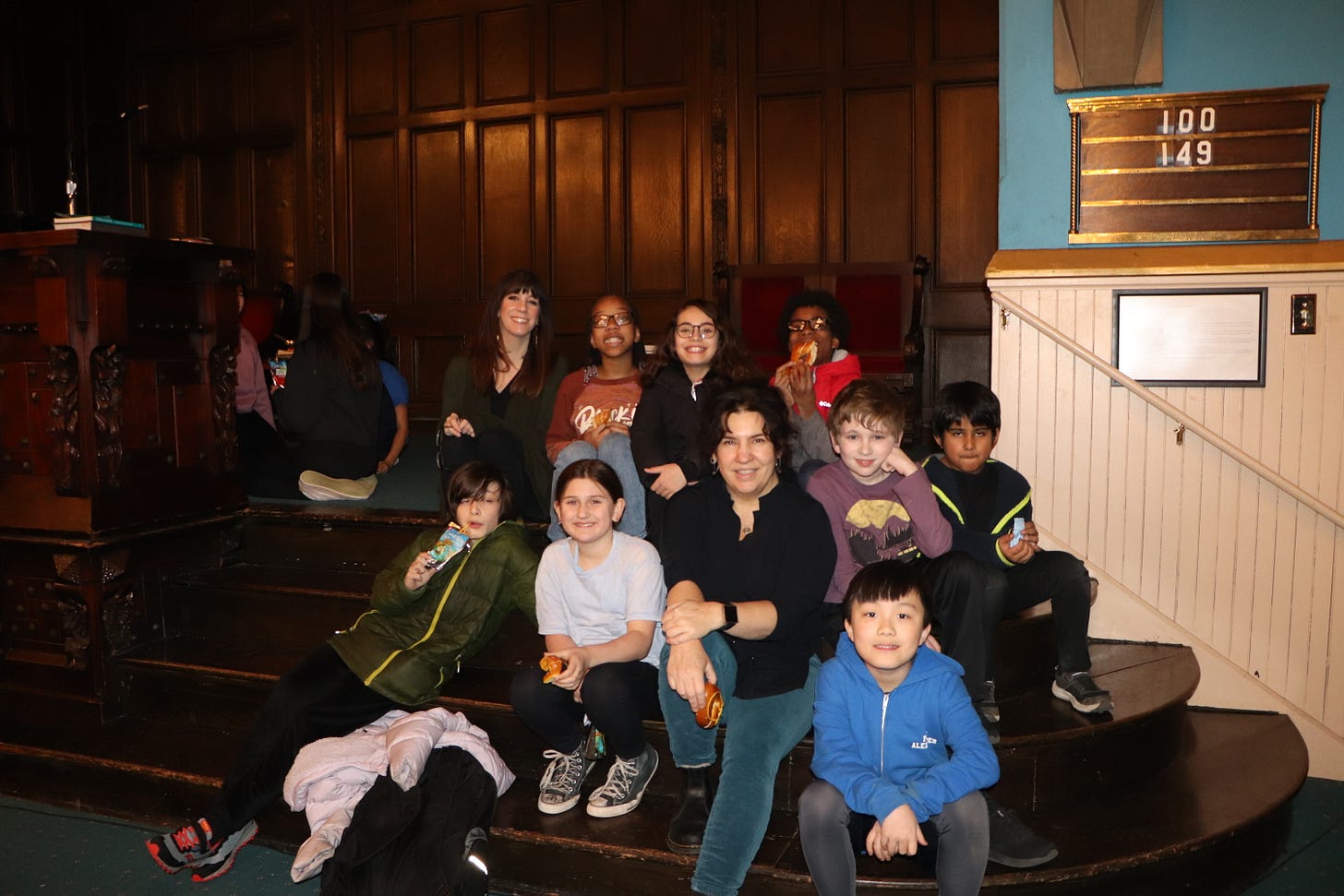Music For All: Empowering Students Through Music Education
At 18, Aljavar McFarland never imagined that a violin would capture his heart. His passion emerged in the basement of a local Philadelphia church where, every Tuesday evening, laughter and the sound of tuning instruments spill onto the sidewalk. Alongside his peers, Aljavar meets at The First Unitarian Church on Chestnut Street to play and gather with others who share his affinity for music.
However, not all students are as fortunate as Aljavar. In low-income areas, resources are often scarce, limiting extracurricular programs. According to the Public Interest Law Center, Philadelphia’s educational programs are severely underfunded, facing a $5,583 shortfall per student. With over 200,000 students, the School District of Philadelphia is the state’s largest.

Despite these challenges, research shows the benefits of a music education extends beyond enjoyment, to enhancing cognitive function and academic skills for students. A Stanford study revealed that music activates brain areas involved in attention, prediction, and memory. Arete Music Academy reports that children who study music tend to have larger vocabularies and more advanced reading skills than their peers who do not participate in music lessons.
Moreover, adequate music education programs have been shown to decrease dropout rate and improve graduation outcomes. “Schools with music programs have an estimated 90.2% graduation rate and 93.9% attendance rate compared to schools without music education, which averages 72.9% graduation and 84.9% attendance,” according to The National Association for Music Education.
Despite these benefits, financial constraints and teacher burnout present significant hurdles. In the 2022 Gallup Poll on occupational burnout, K-12 teachers are ranked as the most burnt-out profession in The United States, with 44% often or always feeling burnout.
Aljavar McFarland, now a senior at The Philadelphia High School for Creative and Performing Arts, has taken his passion for music to a new level by volunteering as student concertmaster for Musicopia, an organization dedicated to overcoming these barriers. Musicopia's mission statement reflects its commitment: "To provide equitable access to music education and enrichment, encouraging self-confidence, global awareness, dedication, and joy in Pre-K to 12th grade students and their communities."
Aljavar spoke to the impact that Musicopia has has on his growth both as a person, and as a leader. “Honestly, I don't have a favorite part about being a student leader at Musicopia,” Aljavar said. “I get to do solos which is cool, but overall I just feel like it's always been there for me, you know? Whatever I need to do for Musicopia I will do it no problem.”
Caitlyn Coleman, the Director of Community Engagement at Musicopia, shared the organization's recent achievements: “Musicopia has evolved so much to keep giving students what they need and meet them where they are. 50 years ago, Musicopia was just strings in schools, now we offer diverse programming from all around the world, from the Middle East to Indonesia to Brazil and many, many more, and we offer programming outside of the classroom now too. To me, the most important aspect of Musicopia is how we refuse to be stagnant and keep trying to do more to transform lives of students through the arts.”
Since 1974, Musicopia, (then called Strings for Schools), has been working to bring music programs to underfunded schools. Co-founder Welthie Fitzgerald was passionate about not only helping schools with existing music programs, but had a special focus on schools that did not have music programs offered to students. Now, Musicopia works directly with schools who are in need of the program.

Musicopia stands by providing tuition free lessons for students, regardless of age, skill level or the family’s financial means. The organization is focused on tailoring programs to the needs and abilities of students. In recent years, Musicopia has begun making sure that their concerts and events are at ADA accessible locations, and are live-streamed in an effort to remove barriers and make it easier for even more people to attend.
The instrument donation program run by Musicopia collects, repairs, and re-uses gently used instruments and gives them to students free of charge. Last school year alone Musicopia was able to repurpose 747 instruments. The organization has established drop off location partners throughout the city and suburbs, where volunteers travel and transport the instruments to schools and students.
Musicopia also has a partnership with local radio station WRTI, which runs advertisements for the instrument donation program on air. They find students eager to play by partnering up with schools, hosting “instrument giveaway days” where students and music teachers alike are able to hand select the instruments that best suit their needs and the needs of their students.
Taia Harlos is the Artistic Director and Conductor at Musicopia. She has used her 30 years of teaching experience to help students develop a lifelong passion for music. Harlos says part of the reason she chose to work for Musicopia is the organization’s dedication to accessible music education for all students.
“I think that bringing kids into these types of programs opens up a world of opportunities,” Harlos said. “I want them to enjoy the process. I want them to love making music with other people, which is why we play in orchestras and do chamber music. Ultimately, my goal is to create lifelong music lovers, whether they're playing in the Musicopia orchestra or in the audience, they feel like they have access and can feel that joy that comes from music.”
Bob Morrison, founder and CEO of Quadrant Research, which informs the Arts Education Data Project, emphasizes the importance of equitable access to music education for all students. His goal is to increase access to and participation in arts education for all students across the country by using data. Morrison started 20 years ago while working for the Pearl Drum company back in the 1980s. Tasked with helping the company develop a new division, Morrison learned that the data that he needed to access was nowhere to be found. This prompted him to create the Arts Data Project, which released their first report 2004, and since then has worked diligently to improve access to arts education across the country.
When discussing access to music education in the United States, Morrison challenges the notion that programs are disappearing. “The vast majority of students in the United States have access not only to arts education, but specifically to music education,” Morrison said. “96% of all schools offer some sort of arts education in the United States. 92% of all schools offer music education in the United States, 65% of all students in the United States participate in some sort of arts education program, and 49% of all students in the United States participate in music.
However, just because these programs are in schools does not mean that access is equal for everyone. “If 92% of all students in the United States have access to music programs,” Morrison said. “Well, that's great. That still means that we have nearly 4 million students that don't have the opportunity to participate in music. Why is it that those students don't deserve the same opportunity as the vast majority of students have in the United States?”
Morrison advocates for a proactive approach to address these disparities. By using data and research through initiatives like the Arts Data Project, his team aims to enhance access, thus ensuring every student across the country has the opportunity to experience the benefits of music education.





